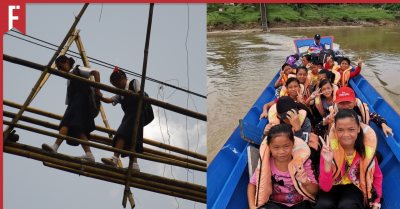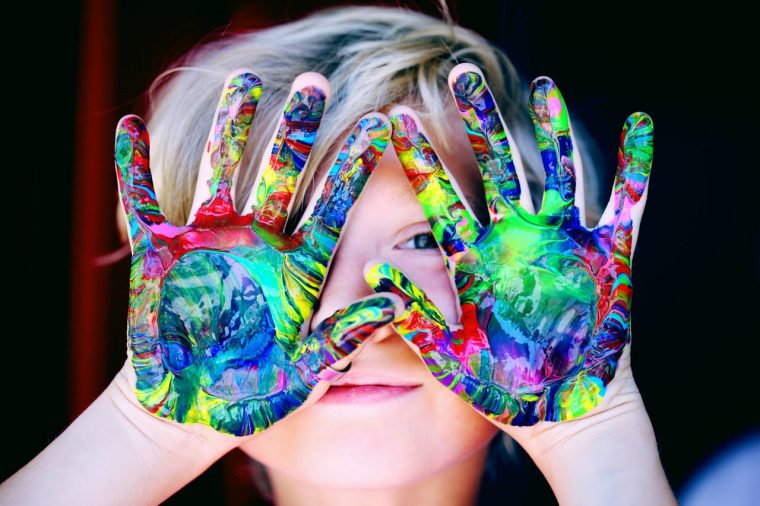
Last week, we had a peek at Aku Bukan Gila, a local film that tackled some serious topics such as mental illness.
But while the film gave a good glimpse of some of the struggles faced by those suffering from bipolar or anger management disorders, it didn’t touch on one of today’s more well known disorders: autism.

To shed some light on this issue, we spoke to Priya Dashini, a local therapist who focuses on teaching autistic children. She was kind enough to give us an inside look at how Malaysian culture and the perceptions of autism have been changing over the years.
Hi Priya! Can you give us a quick introduction about yourself and what you do?
My name is Priya and I’m 26 years old this year. I’ve been working as an Applied Behaviour Analyst (ABA) Therapist at a company called Adapt Enrichment Centre for the last four-and-a-half years now.
I specifically deal with autistic kids of various functionings — from high autistic kids to low autistic kids — between the ages of eight to 14 years old.
How has your work been affected by this year’s events? Did you have to change to virtual learning during the MCO?
It has been greatly affected actually. For this year, we’re focusing more on virtual learning. In one class we have around four to five kids and we teach them subjects such as English, Maths, Science, Music, Dance, etc.
So it’s like a school setting, but with a much smaller group. The ratio is usually two kids to one teacher or one-to-one depending on the kid’s level.
When the MCO first began, we couldn’t travel to the kid’s houses, so we had to switch to online. It was new, for both us the therapists and also the kids, as none of us have tried teaching online before. And our kids are special needs, so there are more challenges compared to having normal kids sitting through online class.

You mentioned that some of the kids were having problems with virtual learning. Could you expand a bit on that?
So, one of the issues that the students had with virtual learning was that their parents were sitting next to them to guide them, and sometimes they’ll take advantage of that. So they’d do things like bully their parents or refuse to listen since they know that their teachers aren’t with them. They can be smart in that way.
We have to include more break times in between lessons and even then, getting their attention is a challenge.
We use Zoom for our virtual learning, so we can share screens and use functions like annotation to encourage them to type things out, but sometimes they get too distracted with that. They get so focused with their chat boxes that they’re not paying attention to the slides we’re trying to show them.
And some kids are doing online learning from their own rooms, so they might get distracted with their toys nearby or even with the view outside, so what happens is that they’ll ignore the teacher talking to look outside the window.
Aside from virtual learning, what would you say are some of the differences when it comes to educating kids on the autism spectrum compared to kids who aren’t?
The main differences will be their engagement and their ability to reciprocate back with you because autistic kids are very focused on rote learning. They’re more into memorising — they don’t really understand the concepts.
Normal kids are generally more curious in nature. When you’re teaching them science, they’ll ask you things like “Why is it like that” or “How come solids can change to liquids”. Whereas with autistic kids if you tell them something, they just accept it.
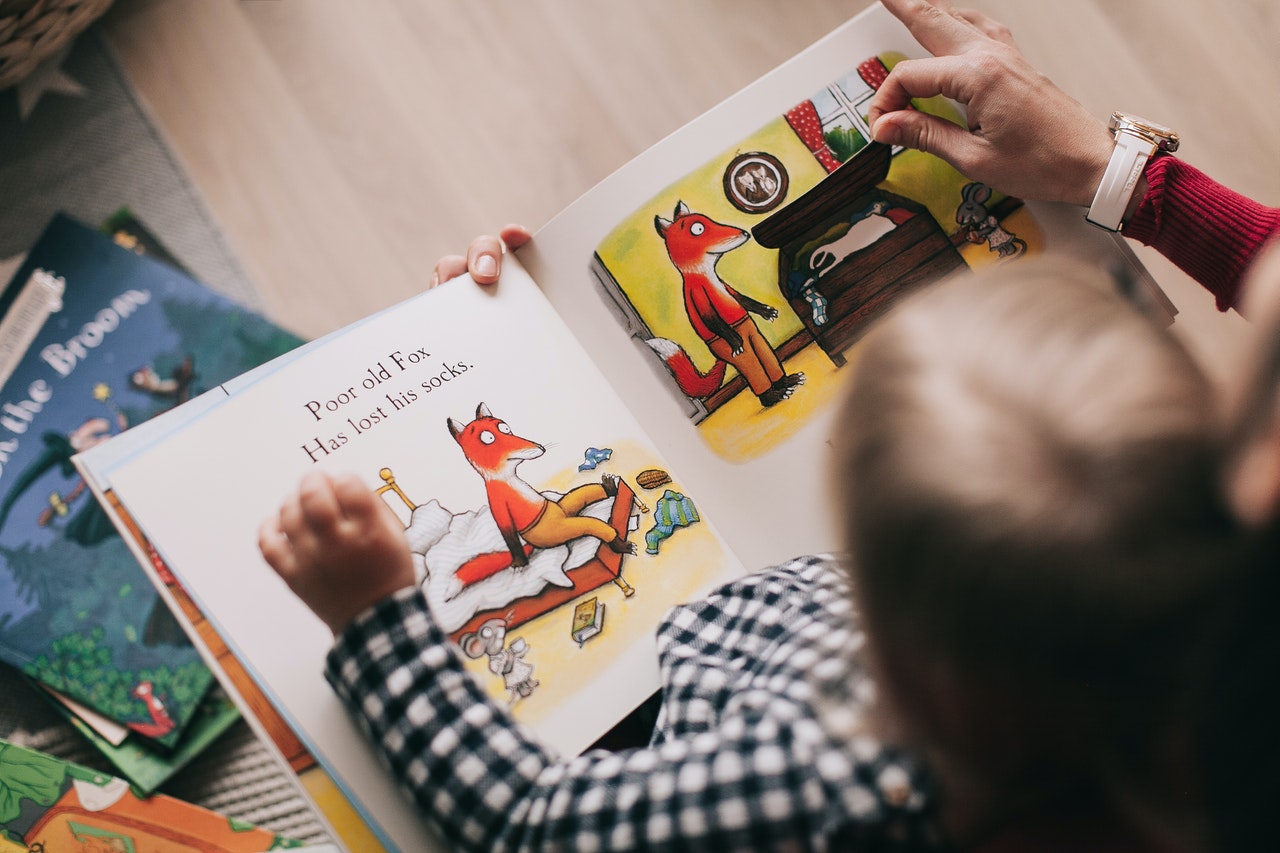
We need to encourage them to be more curious and ask questions, so we use programmes like “Why… because”.
When we read them storybooks, we ask questions like “Why is the boy sad?” and then there’s a situation to explain that maybe he’s sad because he didn’t get a toy. So it teaches them that there’s a cause and effect and encourages them to question and be curious.
How does a child get diagnosed with autism?
Normally you can tell if a child is autistic by around one plus to two years old.
It’s based on eye contact. Usually when a parent calls their name or plays with the child, the child will be able to make eye contact. They’ll turn around and look for their parents. But with autistic kids, they won’t.
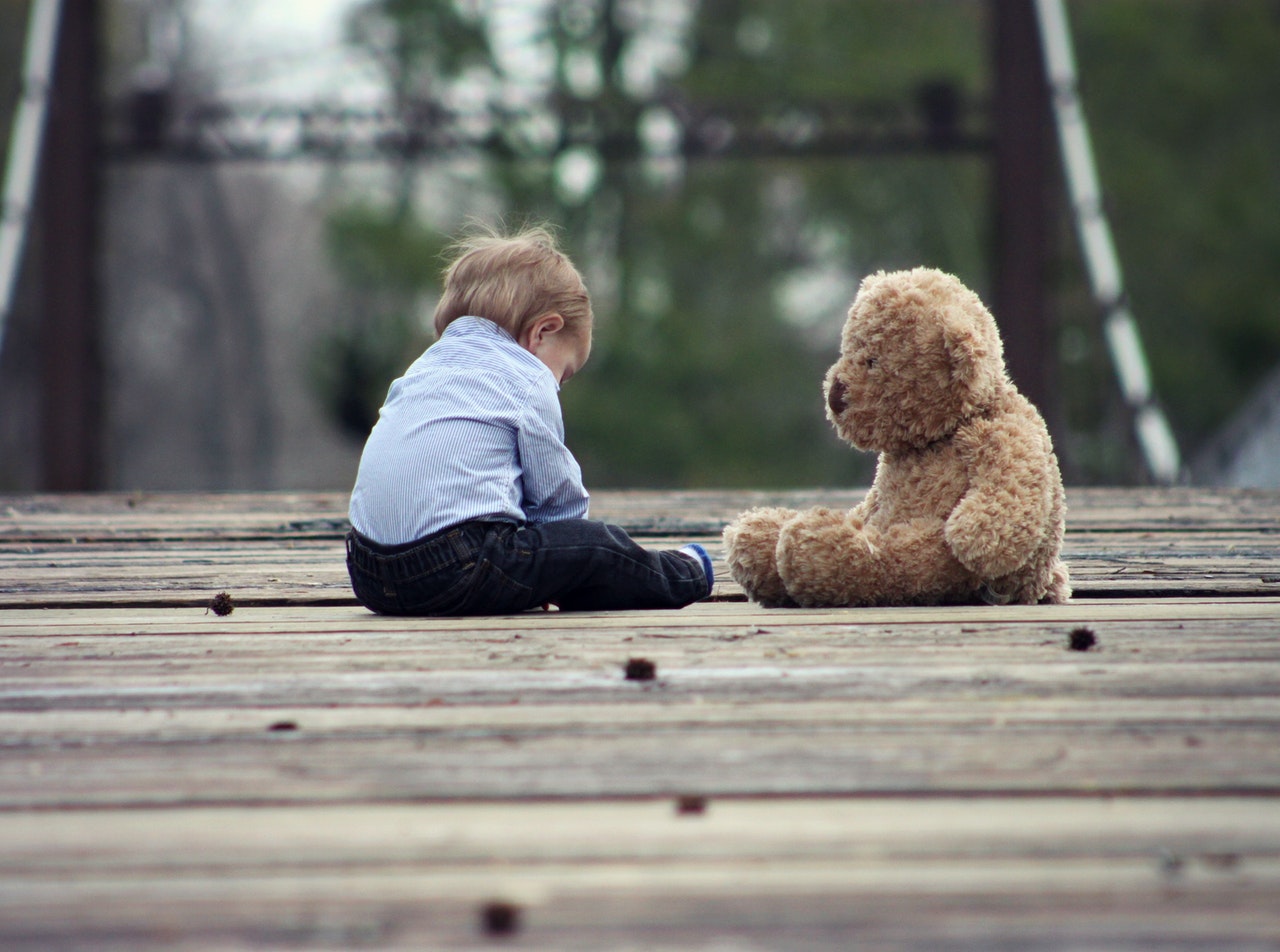
They’ll be very engaged in their own bubble. So even if you call the kid’s name they won’t look at you because they’re more interested in themselves or they’re very fixated with their toys. For example, if you give them a bottle they’ll be just completely focused on the bottle. They won’t want to engage-play — meaning that they won’t want to pass it to you or try to get you to join them.
Some kids like to look at moving objects like a fan spinning. They can just sit down and stare at it for close to an hour.
There are also other signs of fixation, like arranging their toys in a particular way. So they’ll rearrange their toy cars or trains in a very specific order and they get distressed if the order is messed up.
Another thing is that they won’t seek engagement from other people. They’re more individualistic, so they’re more okay with playing alone by themselves compared to other kids who prefer to play with others.
Have you ever seen a case where a child was not diagnosed with autism until they were older?
Actually I’ve never personally had that kind of situation because most of the parents who send their kids to our centre do so after they’ve already been diagnosed.
If a situation like that ever occurred, do you think that undiagnosed autism can affect the mental health of the child?
Yeah, it would definitely affect their mental health as they would be unable to understand why they’re unable to interact with their peers or why they have difficulty communicating or engaging in social interactions.

Have you ever had parents who were not sure how to handle their autistic child?
We do have cases like that, especially with younger kids around four or five years old. When the parents come in, they’re not sure how to deal with their tantrums or meltdowns, so we as therapists will usually guide them and let them know what programmes we’re doing.
For instance, with toilet training: autistic kids won’t tell you “I need to go pee”, so sometimes we toilet train them.
The method depends on whether they’re verbal or non-verbal autistic kids. We have non-verbal ones who can’t speak, so what we usually do is give them a pack of cards with little tokens on them. When they need to go, they’ll pass you the card that says “I want to go toilet”.
For a verbal kid, instead of dashing straight to the toilet, we encourage them to ask us first. We call it a “prompt” — they’ll tap on our shoulder and say “Teacher Priya, I need to go to the toilet”. Then they wait for a response before they go.
We also have to train the parents and make sure they know what we’re doing because the kids will usually come to the centre for only around three to four hours a day. The rest of the time they’re at home.
So we try to keep the parents informed and let them know “Hey, this is what we’re doing” to ensure that the parents are using the prompts or cards at home too. This helps to reinforce the training and helps the child to learn faster as well.
There must be regular communication between parents and therapists. We usually have team meetings that can happen once every three months or once every month depending on the specific child where we update the parents on what we’re doing and how the programme’s going. We also get updates from the parents on how the kids behave at home and if there’s anything we can work on together.

Have you met any parents who were in denial about their kids being on the spectrum?
With younger kids, the parents are sometimes in the denial stage so they find it harder to accept an autistic kid. They will try to push the kid to quickly enter an international school without understanding their diagnosis and their level.
It’s a very Asian parenting style to enter the kids into schooling early and focus on learning about their ABCs and one plus ones rather than developing social skills or managing their emotions.
What kind of effect can this have on the child, to be pushed into school so early?
It can have an effect in that they never get to enjoy their childhoods. They don’t have their playtime, they don’t learn how to play with their friends, they get pushed into academics even though they’re struggling to interact with their peers. So this kind of treatment would definitely affect them in the long term.
Many claim that Asian families have a culture of keeping quiet or trying to ignore learning issues such as autism. In your experience, is this an exaggeration or is it something that actually happens?
I feel that right now there’s less of that kind of thing happening. Today there’s more acceptance about autism — there’s more people willing to talk about it.
Even back when I was in uni we didn’t really learn much about autism, but when I entered the workforce I realized that there’s more conversations going on about autism, more acceptance about it in general.
So I think that things are getting better for autistic kids and their families. It’s easier to get an early diagnosis and people are more aware of the signs and symptoms to look out for.

Do you think that the perception of autism in Asian culture has changed over the years? How?
One of the autism families I follow on Instagram is called Adam’s Autism Family. They share a lot of the experiences when it comes to raising autistic kids.
Remember when I spoke about high functioning and low functioning? So their boy, I think he’s about 17 or 18 years old, he’s quite low functioning. Meaning that he can’t speak, he can’t communicate and he has a lot of tantrums and meltdowns. He’s unable to regulate himself well.
So the parents actually do share incidents where they try to take him out to the mall to eat and he has meltdowns, and the people around them will just stare.
No one ever wants to offer their help.
Usually when autistic kids have a meltdown, they’ll be moving their hands and legs around a lot – they’ll be kicking, punching, trying to do things. So you need to hold them down to keep them calm first. But people won’t offer to help or do anything. They’ll just stare. It’s this Asian mentality of stay away, take videos, don’t get involved.
I personally haven’t seen or experienced that myself because normally I deal with the kids when they’re at the centre. I haven’t had the chance to go outside with them unless it’s a field trip, and we haven’t done any since the MCO started.

With our field trips, we don’t get a lot of stares. People don’t treat us differently when we go to the futsal court or swimming pool because generally our kids are more compliant and they don’t act out so much in public.
But when I see some of the reactions from this dad sharing videos and stories of such incidents happening and how the public reacts, I think that people still do judge — especially when it comes to lower functioning kids.
Higher functioning kids are able to regulate themselves whereas lower functioning kids are not aware of social cues. Even in a public place like a restaurant, they’ll make more noise, fidget and move around a lot whereas high functioning kids will know how to regulate themselves better.
So in terms of culture, I feel that while we have made improvements people still need more education and awareness of autism.
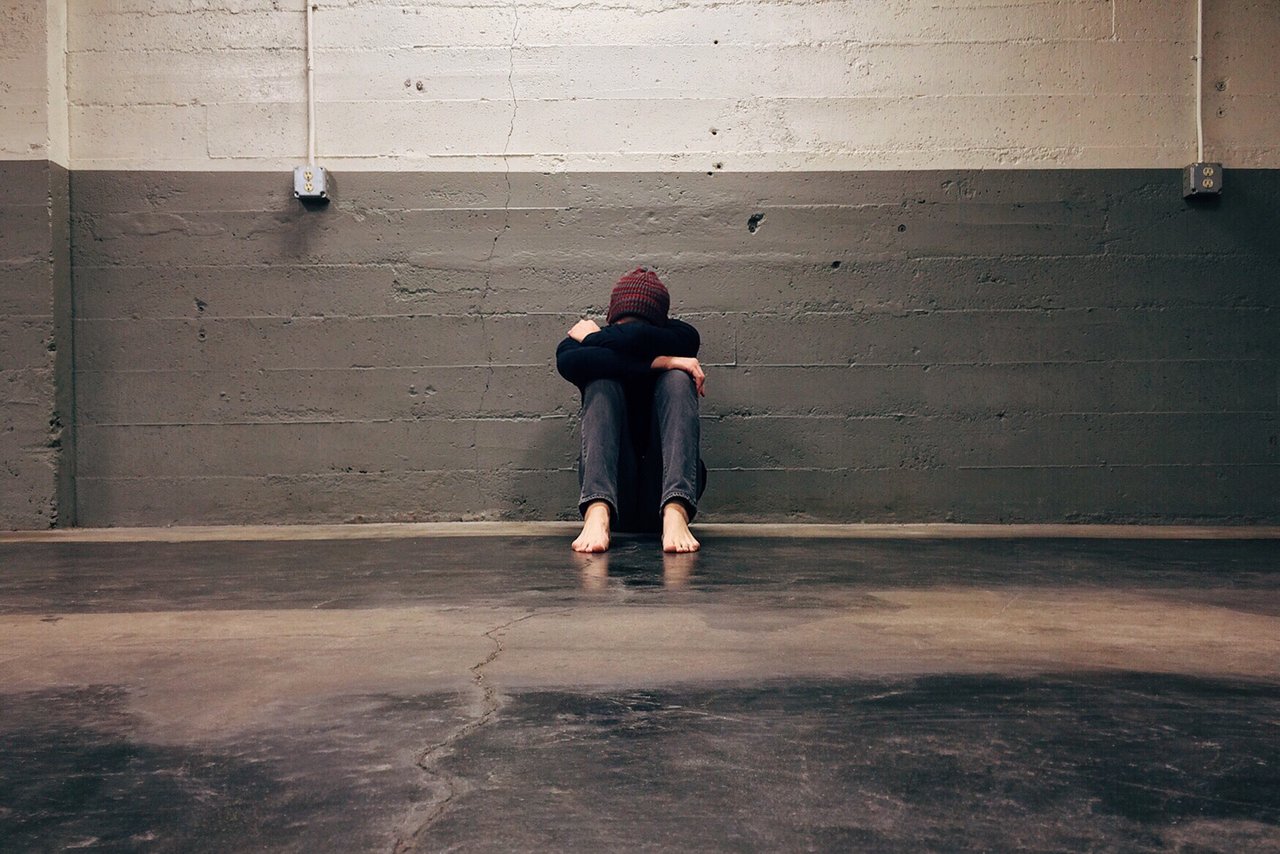
If a parent tries to keep their child’s autism a secret or pretend it’s not real, how would it affect the child’s well being?
I think it would cause a great amount of stress on both the child and the parents because it takes a great amount of effort to keep it a secret.
No matter what you do, people will eventually be able to see that something’s not right because the way that the child interacts, communicates and even eye contact will be different.
So if the parents are the type that insists on trying to keep it a secret, it will hinder the child’s progress. These kids are generally very talented in different ways. Some are very talented in drawing, some are musically inclined, some are really good at maths… trying to keep it suppressed is just going to backfire because it will stop the kids from being able to progress or find out what their talents are.
What kind of advice would you give to a parent who’s worried that their loved ones are struggling with autism or other learning disorders?
I would say that the parents need support because handling an autistic child is not easy. It takes a whole village to help: from the parents to the therapists to their friends, to their community… it’s not just “send the kid to therapy” and that’s it.
They need community-based assistance. The community itself needs to realize that “Hey, we can look into these kid’s needs and be more sensitive and help them to progress”. So it’s about creating a more nurturing and supportive environment.
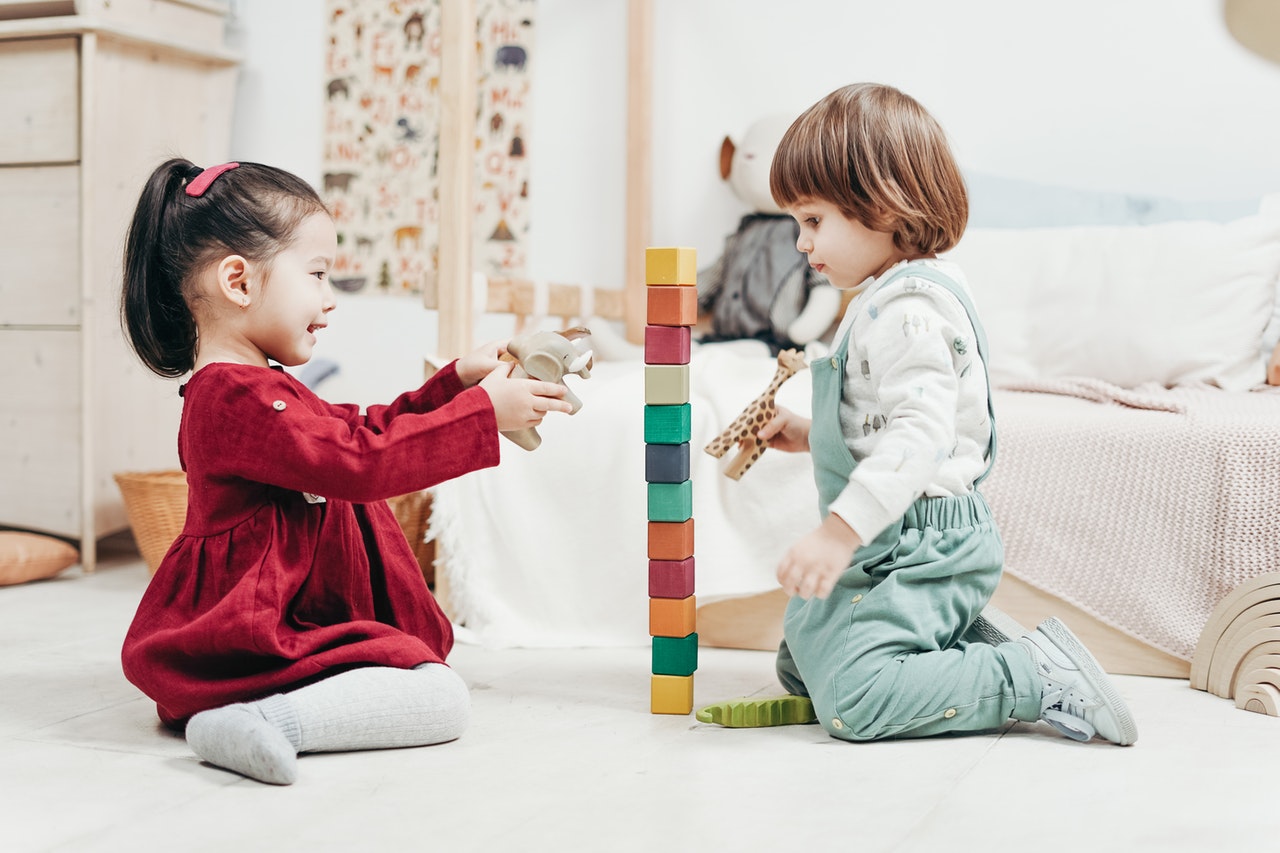
Counseling wise, I’d say that they need a support group because each autistic kid is unique. I can have two high functioning kids, but the challenges they face may be totally different. I can’t just group them together — all high functioning in one group and all low functioning in another — because individually, they go through very different things.
So the parents really need a good support system – from their friends to other parents who are going through autism, and also from parents that have normal kids.
It is important to not compare or say things like “Hey my kid is able to do this, how is your kid progressing?” Be more aware of what you’re saying because some parents may feel that you’re judging or looking down on them because their kids are autistic.

So if someone suspects that their child is autistic, is there any particular helpline or agency they can talk to in order to get a diagnosis?
Yeah, they can get a diagnosis with child pediatricians in hospitals.
When the kid is one or two years old, you obviously need to take them in for their jabs and all. During that time you can get your initial assessment.
If the parents are still unsatisfied or unsure, they can go to an autism center — they do usually offer screening or assessments, though it might cost a bit more. But definitely the best option is to go to a government pediatrician first.
No One Can Do It All Alone
Whether you’re a new parent or you’ve raised special needs kids before, finding a good support group can help to lift the burden from your shoulders. In her parting words, Priya left us with a final message for all parents out there: “It is important to seek out a support group that you can trust.”
Whether you’re doing in-person meetings or using apps such as Kidzdiretc, a good support system is essential.
Though every child and every family is unique, you can gain strength by leaning onto each other. Knowing that you’re not alone, that you have someone who’s also facing something similar as what you’re going through, truly does make a big difference.






